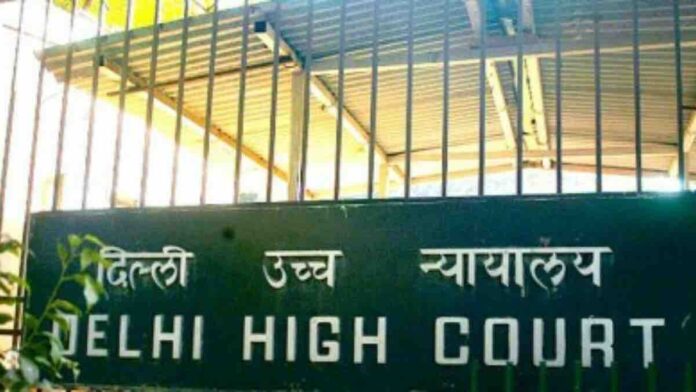Reports and dossiers by intelligence agencies cannot be disclosed under the RTI Act especially if they compromise with the sovereignty or integrity of the country, the Delhi High Court Friday said.
The High Court’s order came while dismissing a plea by death row convict Ehtesham Qutubuddin Siddique, who was seeking the reports submitted by the Maharashtra and Andhra Pradesh governments regarding investigation into the 2006 Mumbai train bombings.
The High Court said if the reports are not shared with the applicant under the Right to Information Act, it is surely in the interest of the country and its citizens.
Justice Prathiba M Singh upheld the order passed by the Chief Information Commission (CIC) which refused to direct authorities to provide the information to Mumbai bomb blasts case convict Siddique, who has claimed that he was falsely implicated in the case and it amounts to violation of his human rights.
“Reports and dossiers by intelligence authorities, which are subject matter of investigation, cannot be disclosed under the Right To Information (RTI) Act, especially if they compromise the sovereignty or integrity of the country.
“The major public interest is in protecting the safety and security and not in disclosing such reports. In these facts and circumstances, this court is of the opinion that the CIC order cannot be faulted with and the writ petition is accordingly dismissed,” the high court said.
On July 11, 2006, seven RDX explosions ripped through as many Western line local trains in Mumbai, leading to the death of 189 people and injuring 829.
Siddique has sought a copy of the report or dossier submitted by the Maharashtra government regarding investigation into the the bomb blast case in the year 2006 and also the report or dossier submitted by the then Andhra Pradesh government in 2009 regarding investigation of Indian Mujahideen group related to the bomb blast case.
Advocate Arpit Bhargava, representing Siddique, submitted that the CPIO had initially relied upon only section 8(1) (a) of the RTI Act to reject the disclosure of the information. However, at the second appellate stage before the CIC, Section 8(1)(h) and section 24 of the Act have also been relied upon and the same is not permissible as the RTI applicant is taken by surprise.
He submitted that the reliance on section 8(1)(h) is completely misplaced as the investigation has already concluded and the conviction has taken place of the petitioner. The confirmation is now challenged before the Bombay High Court and the same is pending.
The Central government standing counsel Rahul Sharma, representing the Ministry of Home Affairs, submitted that the petitioner was involved in one of the worst terrorist attacks in India and the entire RTI application was based on a newspaper report.
He said the report or dossier which is sought by the applicant cannot be given as they may contain various facts over which the investigation is still underway.
The government counsel said the applicant has asked for the complete intelligence report which cannot be given as it is not a small crime but a crime against the state and all the accused, including foreign nationals, have not been apprehended yet.
He said it was classified information and covered under the exemption provided in the Act.
The high court, while dictating the order, said the investigation qua a particular individual may have been concluded but it would not in any manner mean that the probe has concluded finally and such reports could be having a major bearing on India’s sovereignty and integrity.
“There can be no doubt that terrorist activities affect the integrity of a country and they also compromise India’s safety and also the safety of its citizens and security of the country.
“On one hand the petitioner claims rights to access these reports on the basis of his right to information being a convict in the Mumbai bomb blasts. On the other hand, the respondents (authorities) are interested in safeguarding the safety of the citizens and the security of the country,” it said.
The high court said the exemption under section 8(1)(a) is an exemption which is enacted keeping in mind cases of this nature and the CPIO’s reply cannot be faulted with and the same has been rightly upheld by the CIC.
If such a report by an anti-terrorist squad is not revealed to an RTI applicant, it is obviously in the interest of the country and this approach of the CIC also cannot be faulted with, it said.
The court added that the case of the petitioner who has undergone a MCOCA trial and whose appeal is pending before the Bombay High Court would not be a case where under the RTI, the information which affects the security and sovereignty of the country can be disclosed in this manner.




